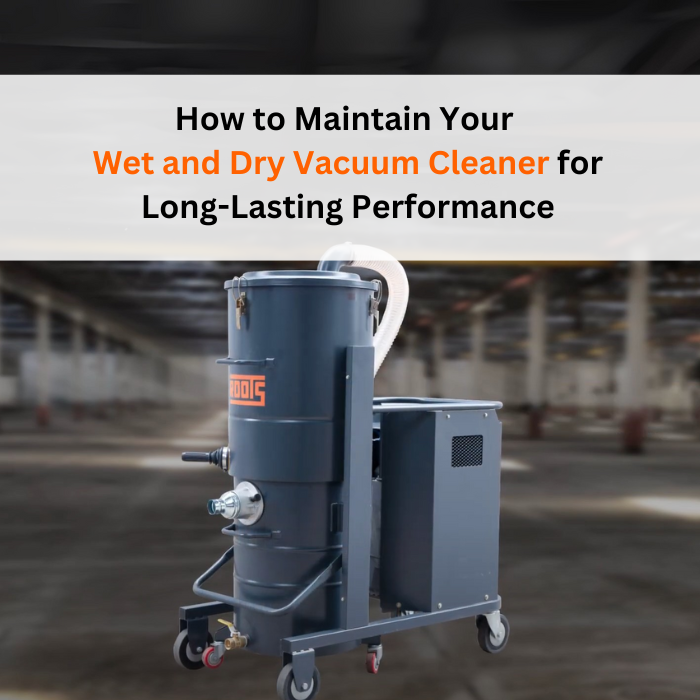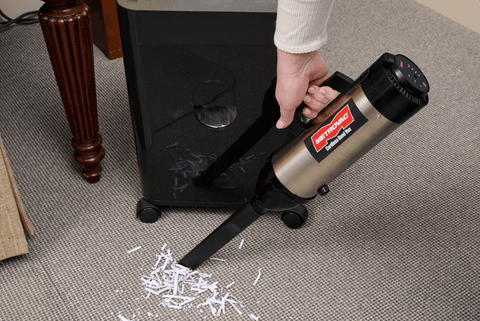How long should you keep a vacuum cleaner before it’s time to replace it? You might not think about this often, but knowing when to say goodbye can save you money and keep your home cleaner.
Using an old or worn-out vacuum can leave dirt behind and even cause more harm than good. You’ll discover the signs your vacuum is past its prime, how to extend its life, and when it’s really time to get a new one.
Keep reading to make sure your cleaning routine stays effective and hassle-free.

Credit: www.phclean.net
Vacuum Cleaner Lifespan Basics
Understanding how long a vacuum cleaner lasts helps with smart buying and maintenance. Knowing its lifespan guides you on when to repair or replace it. This saves money and keeps your home clean efficiently.
Average Lifespan Of Different Types
Upright vacuum cleaners usually last about 8 to 10 years. Canister vacuums tend to last around 7 to 9 years. Handheld models have a shorter life, often 3 to 5 years. Robot vacuums typically last 3 to 6 years before needing replacement.
Older models may last longer but use more energy. Newer models focus on efficiency and easy maintenance. Lifespan can vary based on the brand and model quality.
Factors Influencing Durability
How often you use your vacuum affects its lifespan. Daily use wears parts faster than weekly use. Cleaning and replacing filters regularly helps keep it working well. Storing the vacuum in a dry place prevents damage.
Vacuuming rough surfaces or large debris can cause faster wear. Quality of parts and build affects durability too. Proper care and timely repairs extend the vacuum’s life.
Signs It’s Time To Replace
Knowing when to replace your vacuum cleaner saves time and money. Some signs show your vacuum is past its best. Ignoring these signs can make cleaning harder and less effective. Watch for changes in how your vacuum works. These clues help you decide if a new vacuum is needed.
Decreased Suction Power
Suction power is key for good cleaning. If your vacuum pulls less dirt than before, it may be weak. Check if the vacuum misses dust or debris. Clogged filters or hoses cause this, but sometimes the motor weakens. Low suction means your vacuum is not doing its job well.
Frequent Repairs Needed
Fixing your vacuum often can be costly. Parts that break regularly show wear and tear. Spending more on repairs than a new vacuum makes no sense. Frequent breakdowns interrupt cleaning and cause frustration. A vacuum needing constant repairs usually needs replacement.
Unusual Noises And Smells
Strange sounds are warning signs. Loud or odd noises mean parts may be damaged. Burning smells or smoke are serious problems. These issues can cause bigger damage or safety risks. Your vacuum should run smoothly and quietly without bad odors.
Extending Your Vacuum’s Life
Extending your vacuum’s life saves money and keeps cleaning easy. A well-cared vacuum works better and lasts longer. Small actions every month help avoid big repairs or early replacement. Focus on simple habits to protect your machine and keep it running smoothly.
Regular Maintenance Tips
Clean the filters often. Clogged filters make the vacuum work hard. Empty the dustbin or bag after each use. Check for blockages in the hose or brush. Replace worn belts and brushes on time. These steps keep your vacuum strong and efficient.
Proper Storage Practices
Store your vacuum in a dry, cool place. Avoid areas with high heat or moisture. Keep the cord wrapped loosely to stop damage. Place the vacuum where it won’t fall or get crushed. Good storage protects parts and prevents early wear.
Choosing The Right Attachments
Use attachments designed for your vacuum model. Attachments help clean different surfaces without strain. Avoid using hard tools on delicate parts. Choose brushes and nozzles that fit well. Proper tools reduce damage and improve cleaning results.

Credit: www.nytimes.com
When To Repair Vs. Replace
Deciding whether to repair or replace a vacuum cleaner can be tricky. It depends on many factors like cost, the machine’s age, and how much it is used. Knowing when to fix it or buy a new one helps save money and keeps your home clean.
Cost Comparison
Check the price of repair parts and labor. If the repair costs more than half the price of a new vacuum, replacement may be better. Small fixes like changing filters are cheap. Major repairs like motor replacement cost more. Balance repair costs against a new vacuum price.
Evaluating Repair Feasibility
Consider the vacuum’s age and condition. Older models may break down often. Some parts might be hard to find. Newer models have better technology and last longer. If the vacuum has many problems, replacing it saves time and effort.
Environmental Considerations
Repairing reduces waste and helps the planet. Throwing away a vacuum adds to landfill. Fixing old machines lowers pollution from making new ones. Recycle parts if you replace the vacuum. Choose eco-friendly models to reduce energy use.
Choosing A New Vacuum Cleaner
Choosing a new vacuum cleaner needs careful thought. You want a machine that lasts long and cleans well. This means picking the right features and knowing what to expect from your budget. Understanding warranty details also helps you avoid extra costs later.
Features For Longevity
Strong motors often last longer and clean better. Look for models with washable filters and easy-to-replace parts. A sturdy build made from quality materials stands up to daily use. Cord length and weight affect how easy the vacuum is to use.
Budget And Warranty Insights
Set a clear budget before shopping. Spending a bit more can bring better durability. Check the warranty length and what it covers. Longer warranties show the brand trusts its product. Save receipts and manuals for quick service if needed.
Popular Durable Models
Some brands are known for lasting vacuums. Brands like Shark, Dyson, and Miele offer strong performance. Upright and canister styles both have durable options. Read user reviews to see how long models last in real homes.

Credit: www.rootsmulticlean.com
Frequently Asked Questions
How Long Does A Vacuum Cleaner Typically Last?
A vacuum cleaner usually lasts 8 to 10 years with proper care. Regular maintenance and timely part replacements can extend its lifespan. Usage frequency and model quality also affect durability. Investing in a reliable brand helps ensure longer service life.
When Should I Replace My Vacuum Cleaner?
Replace your vacuum cleaner if suction weakens or parts break frequently. Persistent motor issues or outdated technology are signs to upgrade. Newer models offer better efficiency and features. Consider replacement after 8-10 years for optimal cleaning performance.
How Often Should I Maintain My Vacuum Cleaner?
Clean filters and brushes every 1-3 months, depending on use. Regularly empty the dustbin or bag to maintain suction power. Inspect belts and hoses every 6 months. Consistent maintenance keeps your vacuum running efficiently and prolongs its lifespan.
Can Vacuum Cleaners Become Less Effective Over Time?
Yes, vacuum cleaners lose suction and efficiency due to wear and clogging. Dust buildup and worn parts reduce performance. Regular cleaning and part replacement help maintain effectiveness. Aging motors and belts naturally degrade, making eventual replacement necessary.
Conclusion
Choosing how long to keep a vacuum cleaner depends on its condition and your needs. Regular cleaning and maintenance help it last longer. Watch for signs like weak suction or strange noises. Older models may use more electricity and work less well.
Replacing your vacuum can save time and effort in cleaning. Think about your budget and how often you clean. A good vacuum makes your home healthier and cleaner. Keep it working well or know when to get a new one.
Simple steps make a big difference in your cleaning routine.





